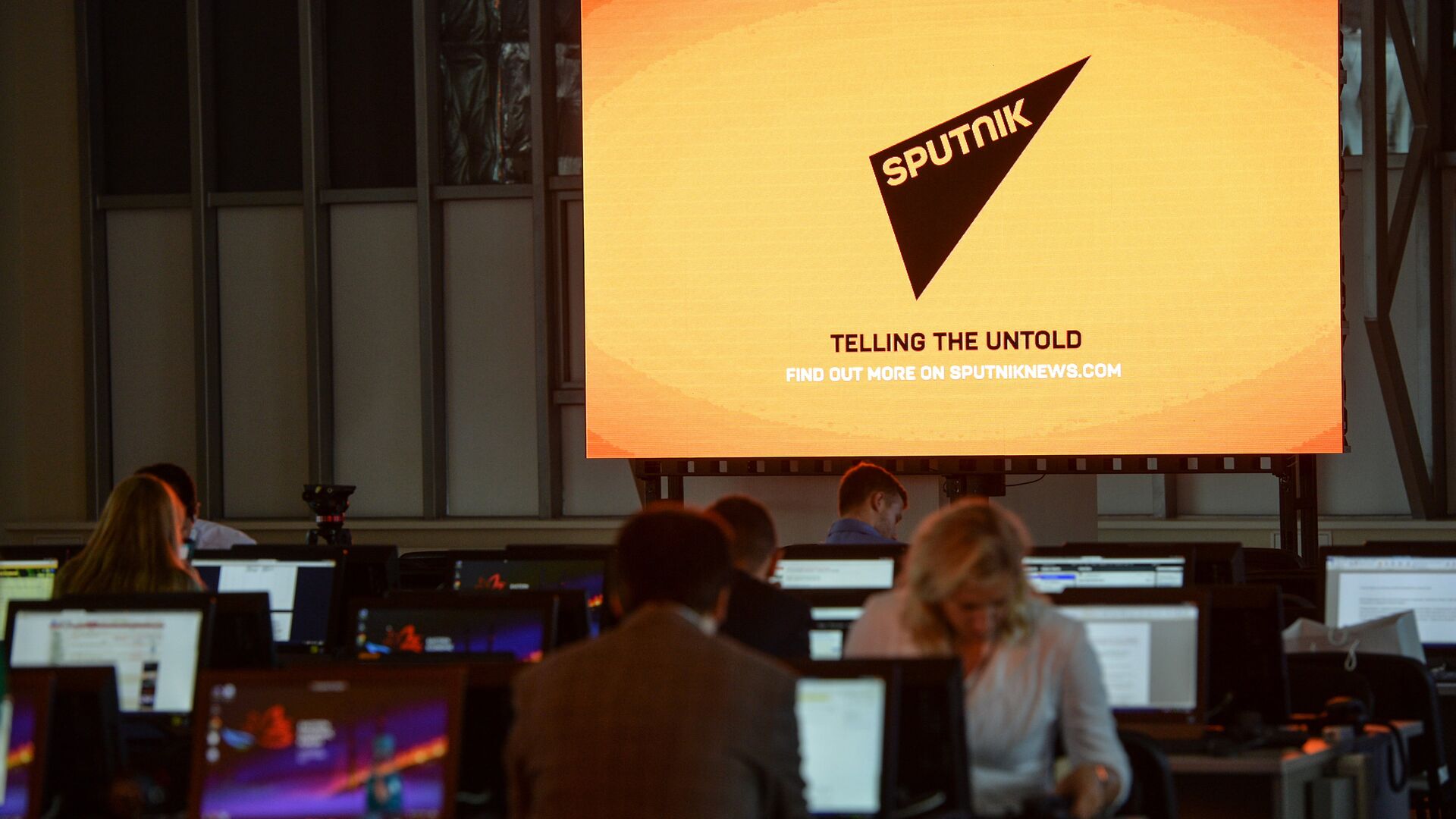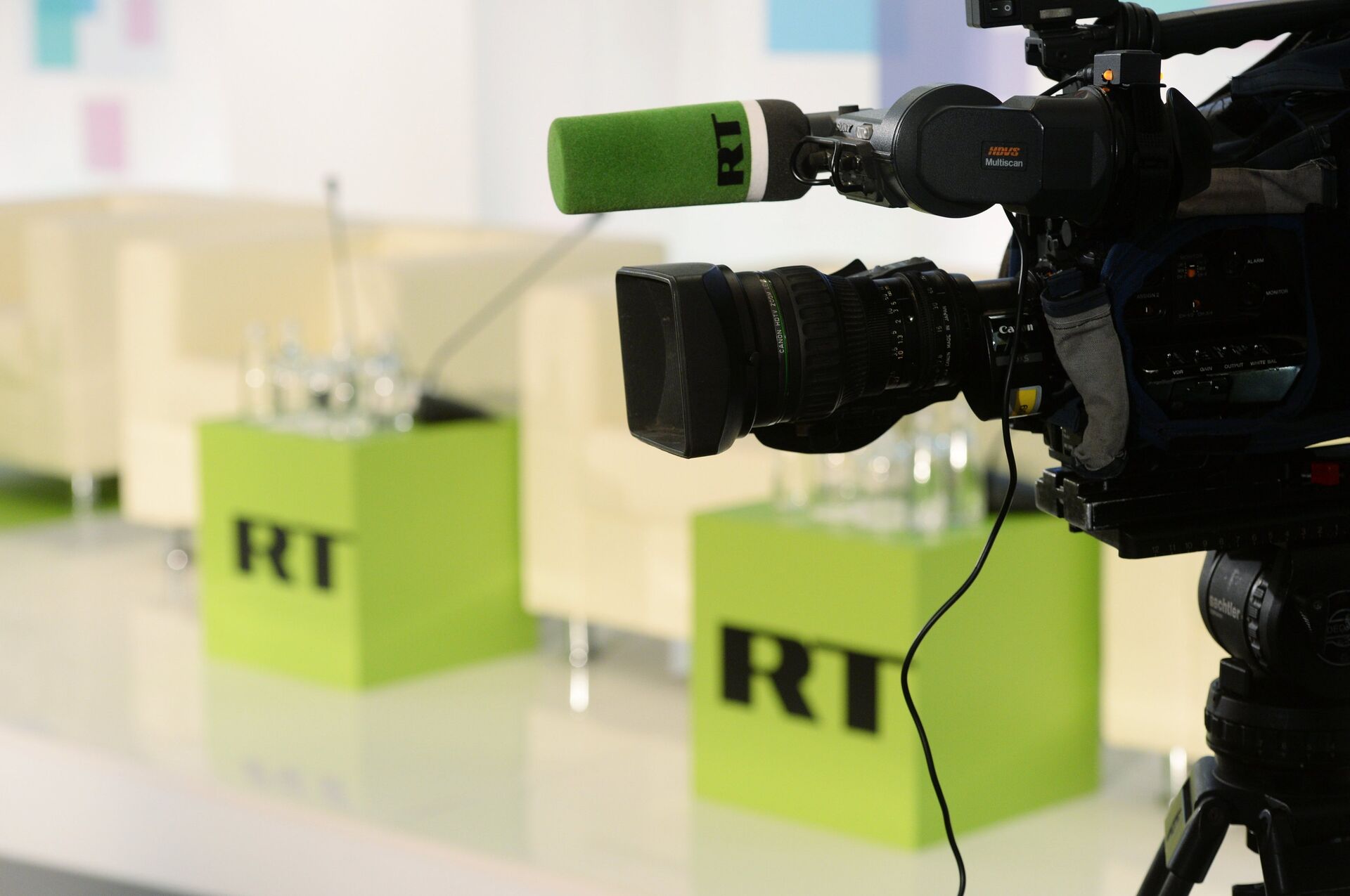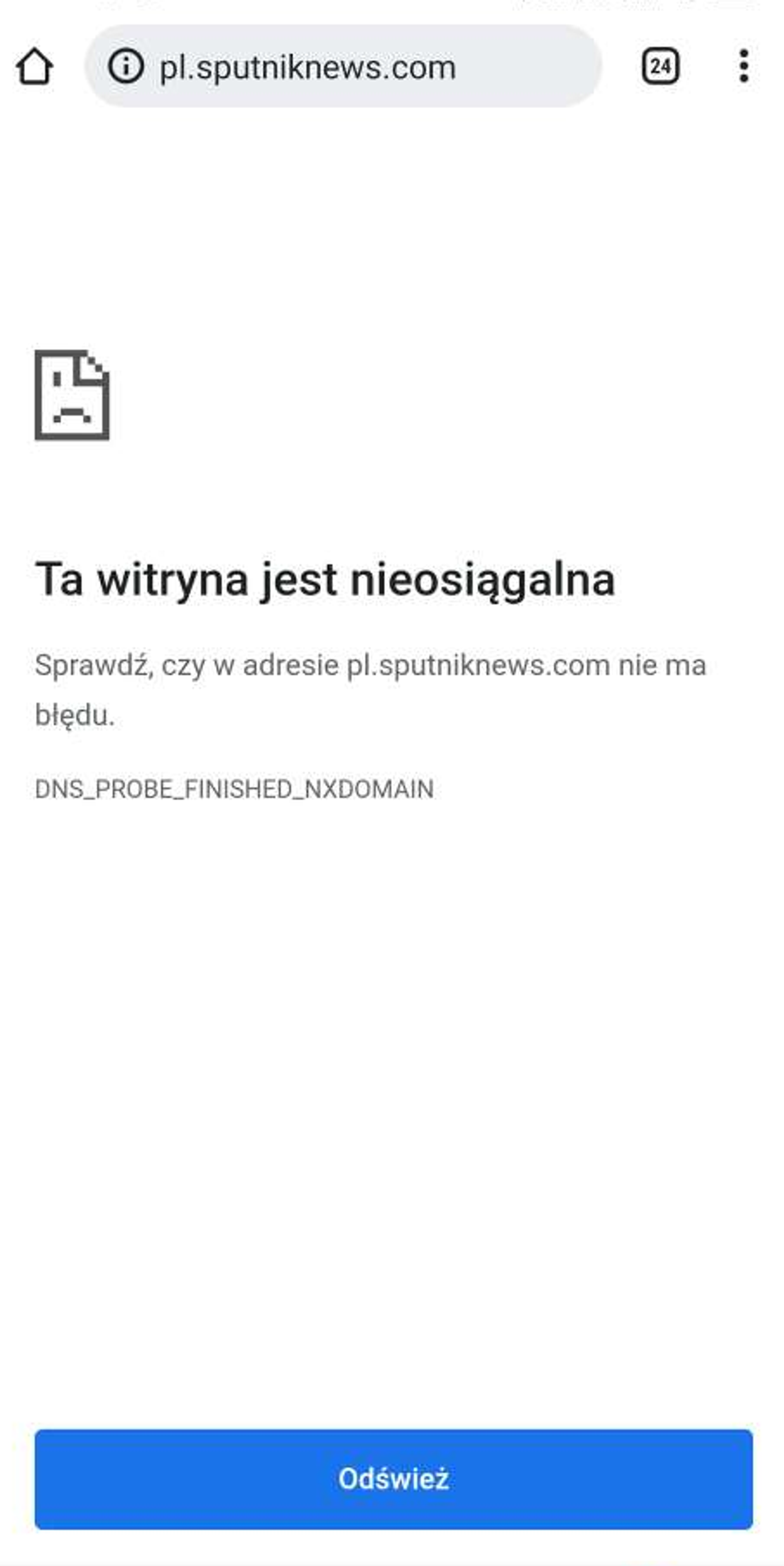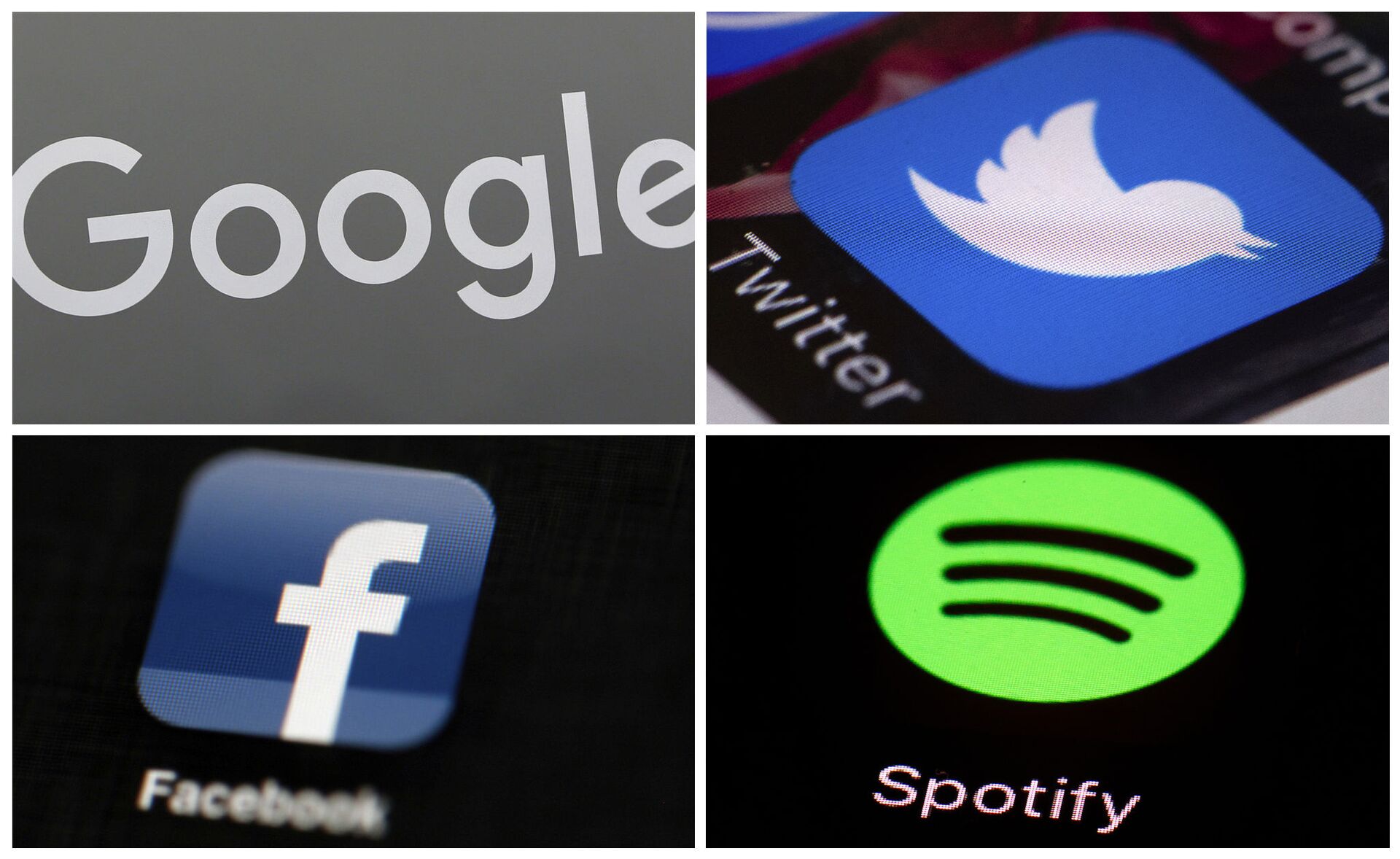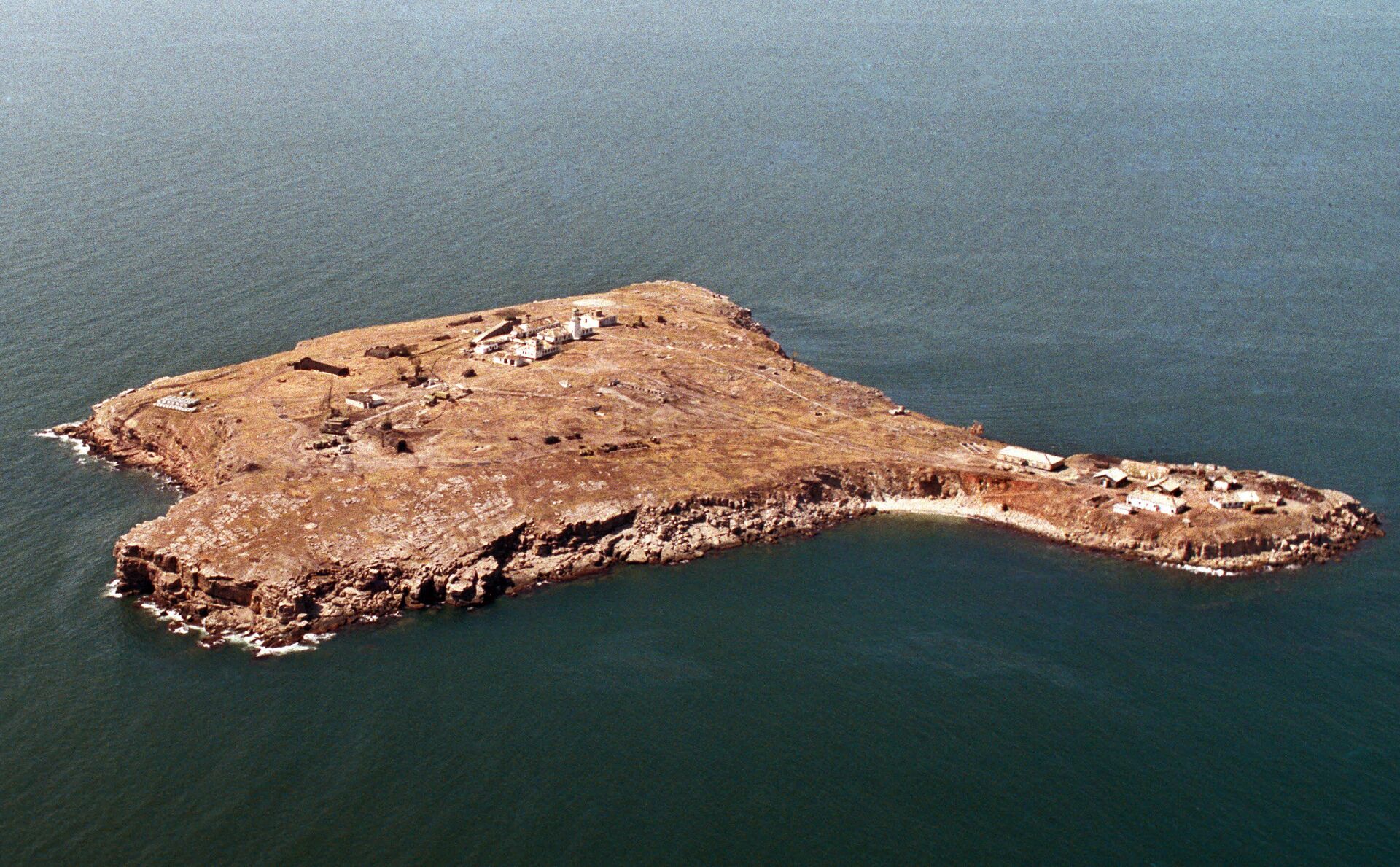https://sputnikglobe.com/20220301/journalistic-unions-and-lawyers-eu-censorship-of-sputnik-and-rt-is-counterproductive-and-illegal-1093492486.html
Journalistic Unions and Lawyers: EU Censorship of Sputnik and RT is Counterproductive and Illegal
Journalistic Unions and Lawyers: EU Censorship of Sputnik and RT is Counterproductive and Illegal
Sputnik International
The European Commission has proposed banning Russia's Sputnik and RT from accessing the European media market over Russia's "special operation" in Ukraine. The... 01.03.2022, Sputnik International
2022-03-01T16:20+0000
2022-03-01T16:20+0000
2023-04-30T05:40+0000
europe
instagram
rt
sputnik news
tik tok
youtube
google
facebook
x (formerly twitter)
censorship
https://cdn1.img.sputnikglobe.com/img/103383/80/1033838044_0:160:3073:1889_1920x0_80_0_0_ca2741b9dc9a7e69cba6da0e0fb1c532.jpg
"First of all, one should bear in mind that media regulation is not within the competence of the European Union," says Ricardo Gutiérrez, general secretary of the European Federation of Journalists (EFJ), the largest journalist organisation in Europe. European Commission President Ursula von der Leyen has announced measures that she will not be able to put into practice. The EU does not have the right to issue or revoke a broadcast license. This is the exclusive competence of states. Secondly, shutting down the media altogether does not seem to be the best way to deal with disinformation or propaganda."On 27 February, von der Leyen claimed that the EU would ban Sputnik and RT's "toxic and harmful disinformation in Europe."Gutiérrez argues that censorship could be counterproductive for citizens who read or watch banned media. Instead, apparent disinformation should be countered by exposing factual errors or poor journalistic research, demonstrating the lack of their financial or political independence, devotion to special interests and disregard for the public interest, according to the EFJ general secretary.The prohibition of the media outlet is a serious step that must be based on a solid legal framework and objective reasons in order to avoid arbitrariness, according to the EFJ. The major task of democratic countries is to fight disinformation while maintaining the freedom of speech, the federation emphasises, adding that the real antidote to disinformation is not an outright restriction, but a promotion of a vibrant, pluralistic, professional, viable, and completely independent media ecosystem.The EU's move to ban RT and Sputnik means direct censorship that, if passed, would be illegal, according to Berenger Tourne, a lawyer at the Paris Bar since 2001 and former secretary of the Paris Bar Internship Conference."This is not so much a violation of free speech as it is a revision of what was considered free speech," Tourne says. "If the political power now seizes its own press (and in France its major assets already belong to a handful of billionaires), then one can say that a free press simply does not exist. They keep it on a tight leash."Even prior to the European Commission's decision, Sputnik Polska and Sputnik Czech Republic became unavailable to users in the two Central European states. Meanwhile, over the weekend, multiple Sputniks, including Sputnik International, Sputnik German SNA, and Sputnik Ceska Republika reported large-scale DDoS attacks.German regulators announced that they would block RT DE on 2 February, under the pretext that the Russian broadcaster "does not have the necessary broadcasting license."Big Tech on Warpath Against Russian MediaFollowing the EC's proposal to ban Sputnik and RT, Meta, the parent company of Facebook, signalled on Monday that it had blocked access to Sputnik and RT pages across the European Union.Instagram has blocked all RT and Sputnik News accounts in 27 European countries. Earlier the broadcaster said that the Telegram channel of RT France with more than 50,000 subscribers was blocked in France. For its part, TikTok confirmed to several media outlets on Monday that it has restricted access to "Russian-backed" accounts including Sputnik and RT, throughout the EU.Meanwhile, Twitter announced that it would "put warnings on tweets" which are sharing links to "Russian state-affiliated media," adding that the platform has been detecting over 45,000 tweets per day that are sharing links to Sputnik and RT.Simultaneously, Google Europe stated that it is blocking YouTube channels associated with RT and Sputnik across Europe.On 25 and 26 February, Facebook and YouTube blocked what they called "Russian state-affiliated media" from running ads on their platforms, with Twitter also suspending all advertising in Ukraine and Russia.Akkaya stresses that in the times of crises and during military operations, this false information spreads many times faster than usual. According to the secretary general, the duty of a democratic system is to guarantee the right of the population to receive reliable information, including during the period of hostilities.One glaring example is the story of Ukrainian border guards who, according to the Ukrainian authorities, were killed on the Zmeiny (Snake) Island in the Black Sea during Russia's special operation in Ukraine. The story was frantically circulated on social media with some mainstream media and American congressmen re-tweeting and reposting it. However, Sputnik and RT revealed that 82 Ukrainian border guards from the island weren't killed but voluntarily laid down arms, surrendered, and were delivered to Sevastopol in Crimea. The Russian media outlets presented ample video evidence describing the event and interviewed Major General Mikhail Yasnikov, deputy commander of the Black Sea Fleet for logistics.
Sputnik International
feedback@sputniknews.com
+74956456601
MIA „Rossiya Segodnya“
2022
News
en_EN
Sputnik International
feedback@sputniknews.com
+74956456601
MIA „Rossiya Segodnya“
Sputnik International
feedback@sputniknews.com
+74956456601
MIA „Rossiya Segodnya“
europe, instagram, rt, sputnik news, tik tok, youtube, google, facebook, x (formerly twitter), censorship
europe, instagram, rt, sputnik news, tik tok, youtube, google, facebook, x (formerly twitter), censorship
Journalistic Unions and Lawyers: EU Censorship of Sputnik and RT is Counterproductive and Illegal
16:20 GMT 01.03.2022 (Updated: 05:40 GMT 30.04.2023) The European Commission has proposed banning Russia's Sputnik and RT from accessing the European media market over Russia's "special operation" in Ukraine. The ban envisages prohibiting EU operators from broadcasting or distributing Sputnik and RT content across the bloc. This will also apply to licences, authorisation, and distribution agreements.
"First of all, one should bear in mind that media regulation is not within the competence of the European Union," says Ricardo Gutiérrez, general secretary of the European Federation of Journalists (EFJ), the largest journalist organisation in Europe. European Commission President Ursula von der Leyen has announced measures that she will not be able to put into practice. The EU does not have the right to issue or revoke a broadcast license. This is the exclusive competence of states. Secondly, shutting down the media altogether does not seem to be the best way to deal with disinformation or propaganda."
On 27 February, von der Leyen claimed that the EU would ban Sputnik and RT's "toxic and harmful disinformation in Europe."
Gutiérrez argues that censorship could be counterproductive for citizens who read or watch banned media. Instead, apparent disinformation should be countered by exposing factual errors or poor journalistic research, demonstrating the lack of their financial or political independence, devotion to special interests and disregard for the public interest, according to the EFJ general secretary.
The prohibition of the media outlet is a serious step that must be based on a solid legal framework and objective reasons in order to avoid arbitrariness, according to the EFJ. The major task of democratic countries is to fight disinformation while maintaining the freedom of speech, the federation emphasises, adding that the real antidote to disinformation is not an outright restriction, but a promotion of a vibrant, pluralistic, professional, viable, and completely independent media ecosystem.
"The politics of censorship also carry the risk of possible retaliation, as we saw with the DW ban in Russia in response to the RT ban in Germany," says Gutiérrez. "The result of this aggravation was the decline in media pluralism in Russia and Germany. Citizens have lost the right to access information broadcast by DW or RT. It is deplorable."
The EU's move to ban RT and Sputnik means direct censorship that, if passed, would be illegal, according to Berenger Tourne, a lawyer at the Paris Bar since 2001 and former secretary of the Paris Bar Internship Conference.
"This is not so much a violation of free speech as it is a revision of what was considered free speech," Tourne says. "If the political power now seizes its own press (and in France its major assets already belong to a handful of billionaires), then one can say that a free press simply does not exist. They keep it on a tight leash."
Even prior to the European Commission's decision, Sputnik Polska and
Sputnik Czech Republic became unavailable to users in the two Central European states. Meanwhile, over the weekend, multiple Sputniks, including Sputnik International, Sputnik German SNA, and Sputnik Ceska Republika reported large-scale DDoS attacks.
German regulators announced that they would block RT DE on 2 February, under the pretext that the Russian broadcaster "does not have the necessary broadcasting license."
Big Tech on Warpath Against Russian Media
Following the EC's proposal to ban Sputnik and RT, Meta, the parent company of Facebook, signalled on Monday that it had blocked access to Sputnik and RT pages across the European Union.
"We have received requests from a number of Governments and the EU to take further steps in relation to Russian state-controlled media," tweeted Nick Clegg, Meta's president of global affairs, on Monday, while commenting on the company's decision.
Instagram has blocked all RT and
Sputnik News accounts in 27 European countries. Earlier the broadcaster said that the Telegram channel of RT France with more than 50,000 subscribers was blocked in France. For its part, TikTok confirmed to several media outlets on Monday that it has restricted access to "Russian-backed" accounts including Sputnik and RT, throughout the EU.
Meanwhile, Twitter announced that it would "put warnings on tweets" which are sharing links to "Russian state-affiliated media," adding that the platform has been detecting over 45,000 tweets per day that are sharing links to Sputnik and RT.
Simultaneously, Google Europe stated that it is blocking YouTube channels associated with RT and Sputnik across Europe.
On 25 and 26 February, Facebook and YouTube blocked what they called "Russian state-affiliated media" from running ads on their platforms, with Twitter also suspending all advertising in Ukraine and Russia.
"We have already observed a similar approach last year," says İlkay Akkaya, secretary-general of the Union of Journalists of Turkey. "Social networks have introduced a system of labelling 'accounts affiliated with the state,' and, following the logic of double standards, put these markers on the pages of a number of media outlets. Even then it was obvious that this was a political act. In today's environment, we are witnessing a huge wave of disinformation, false and unreliable data, spread, especially through social media. This disinformation is being spread so fast that even if truthful information appears, it does not have time to reach users at the same speed."
Akkaya stresses that in the times of crises and during military operations, this false information spreads many times faster than usual. According to the secretary general, the duty of a democratic system is to guarantee the right of the population to receive reliable information, including during the period of hostilities.
One glaring example is the story of Ukrainian border guards who, according to the Ukrainian authorities, were killed on the Zmeiny (Snake) Island in the Black Sea during Russia's special operation in Ukraine. The story was frantically circulated on social media with some mainstream media and American congressmen re-tweeting and reposting it. However, Sputnik and RT revealed that
82 Ukrainian border guards from the island weren't killed but voluntarily laid down arms, surrendered, and were delivered to Sevastopol in Crimea. The Russian media outlets presented ample video evidence describing the event and interviewed Major General Mikhail Yasnikov, deputy commander of the Black Sea Fleet for logistics.
"The population should be able to see the full picture of what is happening, and receive verified reliable information," says Akkaya. "We must defend the ethical norms and principles that we have committed ourselves to anywhere in the world. Exactly like all international information agencies in Moscow have the opportunity to conduct their activities, including in a critical manner, the same opportunity should be provided [to Russian media] in Paris, Berlin, Athens, Rome and other capitals."
